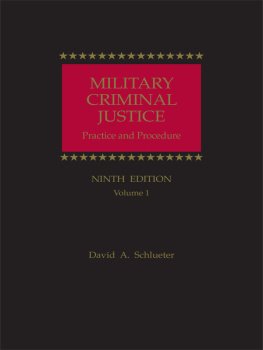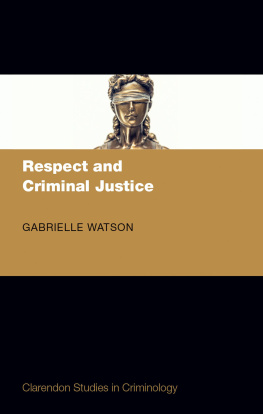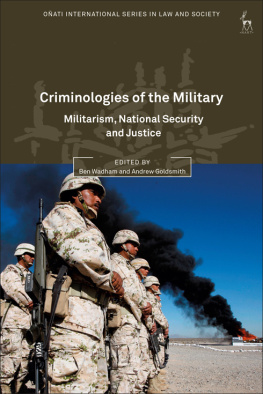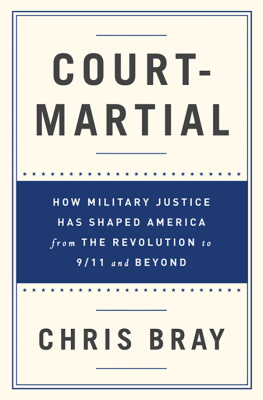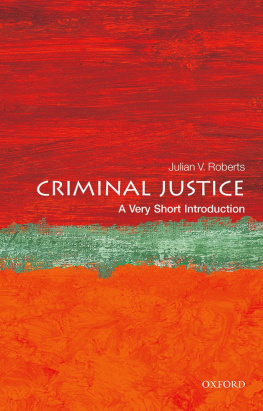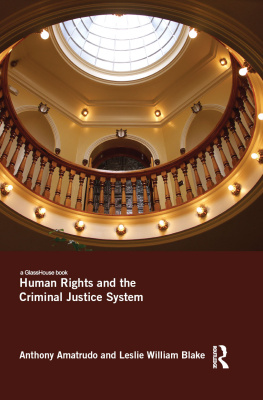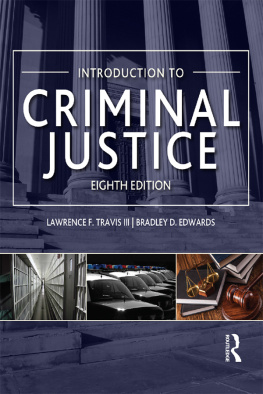MILITARY CRIMINAL JUSTICE: PRACTICE AND PROCEDURE
NINTH EDITION
DAVID A. SCHLUETER
Hardy Professor of Law and Director of Advocacy Programs
St. Marys University
San Antonio, Texas
2016
Volume 1
QUESTIONS ABOUT THIS PUBLICATION?
For questions about the Editorial Content appearing in these volumes or reprint permission, please call:
Ethan Shaw, J.D.
Email... ethan.shaw@lexisnexis.com
Phone... (937) 560-3002
For assistance with replacement pages, shipments, billing or other customer service matters, please call:
Customer Services Department at
... (800) 833-9844
Outside the United States and Canada, please call
... (518) 487-3000
Fax Number
... (518) 487-3584
For information on other Matthew Bender publications, please call
Your account manager or
... (800) 223-1940
Outside the United States and Canada, please call
... (518) 487-3000
LIBRARY OF CONGRESS CATALOGING IN PUBLICATION
Schlueter, David A.
Military criminal justice: practice and procedure / David A. Schlueter.9th ed.
p. cm.
Includes bibliographical references and index.
ISBN 978-1-6328-4051-6 (hardbound)
1. Courts-martial and courts of inquiryUnited States. 2. Military offensesUnited States. I. Title.
KF7620.S34 2008
343.730143dc22
2008039254
Library of Congress Card Number: 2004007414
ISBN: 978-1-6328-4052-3 (eBook)
Cite this publication as:
David A. Schlueter, Military Criminal Justice: Practice and Procedure, no. at p. no. (Matthew Bender & Co. 2016).
Example:
David A. Schlueter, Military Criminal Justice: Practice and Procedure, 16-2[A] at p. 937 (Matthew Bender & Co. 2016).
This publication is designed to provide authoritative information in regard to the subject matter covered. It is sold with the understanding that the publisher is not engaged in rendering legal, accounting, or other professional services. If legal advice or other expert assistance is required, the services of a competent professional should be sought.
LexisNexis and the Knowledge Burst logo are registered trademarks of Reed Elsevier Properties Inc., used under license. Matthew Bender and the Matthew Bender Flame Design are registered trademarks of Matthew Bender Properties Inc.
Copyright 2016 Matthew Bender & Company, Inc., a member of LexisNexis. Originally Published in 2003
All Rights Reserved.
No copyright is claimed by LexisNexis or Matthew Bender & Company, Inc., in the text of statutes, regulations, and excerpts from court opinions quoted within this work. Permission to copy material may be licensed for a fee from the Copyright Clearance Center, 222 Rosewood Drive, Danvers, Mass. 01923, telephone (978) 750-8400.
Editorial Offices
230 Park Ave 7th Floor, New York, NY 10169 1-800-543-6862
www.lexisnexis.com
Terms of Use
Your use of this electronic publication (eBook) from LexisNexis, a division of RELX Inc., a Massachusetts corporation, or its affiliates, is subject to the following terms and conditions. This eBook is for your personal use only. All access to and use of this eBook is subject to U.S. and international copyright law. All intellectual property rights are reserved to the copyright holder. Redistribution or duplication of this eBook to any other electronic media or a third party is strictly prohibited. Under no circumstances may you redistribute this eBook commercially or post this eBook on an intranet, internet or SharePoint site. Finally, use of this eBook is further subject to the terms and conditions of use which were accepted at the time you completed your purchase of this eBook from the point of purchase.
Hyperlink Key
In order to distinguish between the links to other sections within LexisNexis eBooks and external links to the Internet, we have added color coding to the links.
Following is a color key for the links:
Blue: Links inside the eBook
Green: External links to LexisNexison-line and the Internet
David A. Schlueter is the Hardy Professor of Law and Director of Advocacy Programs at St. Marys University School of Law in San Antonio, Texas. Professor Schlueter teaches evidence, trial advocacy, and constitutional law, and has served as both criminal trial and appellate counsel. He has written numerous law review articles and has authored, co-authored, or edited 12 books on procedure and evidence, including five texts on military evidence and procedure: Military Criminal Justice: Practice And Procedure (9th ed. 2015, LexisNexis); Military Rules Of Evidence Manual (8th ed. 2015, LexisNexis) (with Saltzburg, Schinasi and Hansen), Military Crimes and Defenses (2d ed. 2012, LexisNexis) (with Rose, Hansen and Behan), Military Evidentiary Foundations (5th ed. 2013, LexisNexis) (with Saltzburg, Schinasi & Imwinkelried), and Military Criminal Procedure Forms (3d ed. 2009, LexisNexis) (with Jansen, Barry & Arnold). His writings are cited frequently by state and federal courts, including the Supreme Court of the United States, and legal commentators. Before joining the law faculty at St. Marys in 1983, he served on active duty for over nine years as an Army JAGC and worked for two years as in-house legal counsel for the Supreme Court of the United States, a position to which he was appointed by Chief Justice Burger. He retired with the rank of Lieutenant Colonel in 1997, from the United States Army Reserve, JAGC. He is a fellow in the American Law Institute and a Life Fellow in the American Bar Foundation and a Life Fellow in the Texas Bar Foundation. From 1988 until 2005, he served as the Reporter for the Federal Rules of Criminal Procedure Advisory Committee, a position to which he was appointed by Chief Justice Rehnquist.
To Linda,
Jennifer,
Jonathan, Barbara, Morgan, Sara, and Kathryn
The views of the author do not purport to reflect the views of the Department of Defense or the Department of the Army
In the preface to the fifth editiona special edition, commemorating the Fiftieth Anniversary of the Uniform Code of Military JusticeI observed that for those familiar with military justice, the roads taken for the last half-century had not always been smooth or without incident but that the statutory model, adopted now over 50 years ago, had prevailed. In the years since then that still holds true. Several trends have emerged.
First, the governments response to the terror attacks on 9-11 brought to the fore the on-going debate about the ability of someone to receive a fair trial in military tribunals. Military Commissions have been held, and continue to be held, at Guantanamo Bay, Cuba. In the on-going debate about the role of military justice, the conversation often turns to a comparative analysis of trials by courts-martial, military tribunals, state criminal trials, and federal criminal proceedings. That in turn has generated a number of articles, and at least one commission, on the subject of whether further changes should be made to the military criminal justice rules. As demonstrated in the Annotated Bibliography at the end of Chapter 1, the subject of military commissions has been addressed in a high number of law review articles.
Second, in several areas the Court of Appeals for the Armed Forces has signaled an inclination to become more active in addressing what it perceives to be on-going problems in court-martial practicefor example, the issue of post-trial delays and the seemingly intractable issue of unlawful command influence. While some might call such interest activist and unwarranted, others might argue that the time was ripe for the court to step in and address those concerns. And finally, the growing volume of articles on military criminal law signals that the role of lawyers continues to shape military justicenot only in the courtroom but also in the written word.

